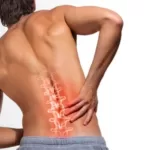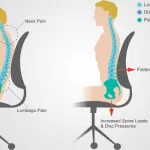Using Relaxation to Help with Chronic Pain
Table of Contents
ToggleImproving your ability to relax can be beneficial in managing chronic pain. Various relaxation techniques, such as reading, watching TV, taking a bath, listening to music, or going for a quiet walk, can help alleviate stress and unwind. However, being in pain can induce stress, leading to changes in muscle tension, breathing patterns, heart rate, and blood pressure, which can further exacerbate pain levels and distress.
Body Scan Relaxation Exercise
Performing a body scan relaxation exercise can be particularly helpful in promoting relaxation. Here’s a step-by-step guide:
- Find a Comfortable Position: Sit or lie down comfortably, with your eyes closed or softly focused.
- Focus on Body Contact: Pay attention to the contact your body makes with surfaces, such as your feet on the floor and your back on the chair.
- Listen to Sounds: Notice the sounds both inside and outside the room.
- Smell and Taste: Become aware of any scents or tastes present in the environment.
- Feel Your Clothes: Notice the sensation of your clothes against your skin.
- Scan Your Body: Slowly scan down from the top of your head to your feet, paying attention to any areas of tension. Try to release tension with each exhale.
- Observe Your Breath: Notice your breath entering and leaving your body. Allow your breath to flow naturally without forcing it.
- Reconnect with Breath: Reconnect with your breath whenever you become distracted during the exercise.
- Explore Sensations: Spend time exploring sensations in relaxed or neutral areas of your body, as well as areas of discomfort. Allow yourself to experience any thoughts or feelings that arise without resistance.
- Return to Breath: Gently return your attention to your breath.
- Notice Surroundings: Finally, bring your attention back to your surroundings, noticing sights, smells, and tastes as you return to your seated or lying position.
Helpful Tips:
- Practice regularly, ideally at the same time and place each day.
- Be patient and realistic about the effectiveness of relaxation techniques.
- Gradually increase the duration of practice if beneficial.
Remember, relaxation is not a cure for pain, but it can help improve coping mechanisms and overall well-being.











